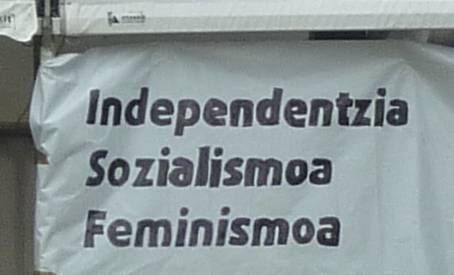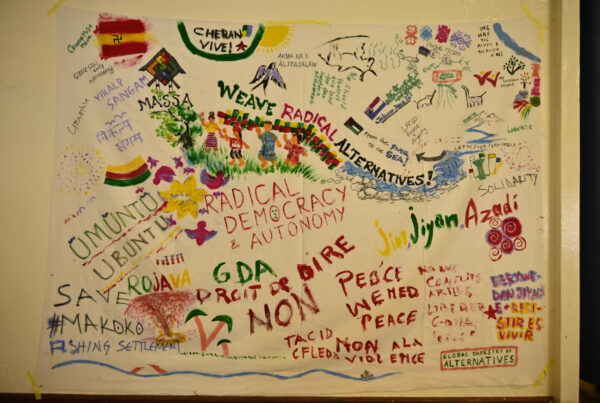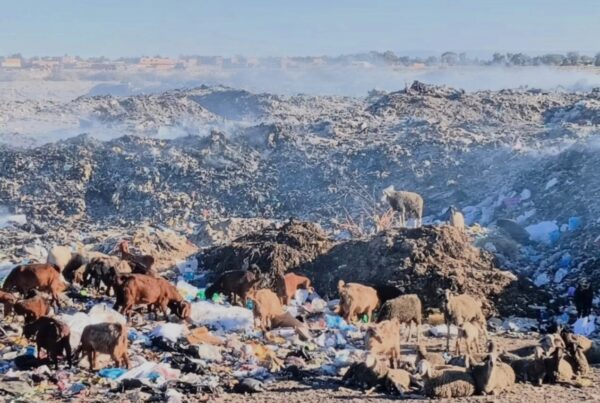For two months I was in Bizkaia, a province of Euskadi (Basque Country), doing my fieldwork. Right in the first days someone told me that Euskadi is not Spain. In fact, this is a territory with a long history of struggle for the right to self-determination, never recognized even after the democratic transition from the Franco dictatorship (1939-1975).
I was quite aware of it before I went there, but I did not know exactly which challenges a trajectory of political and institutional violence could bring to my fieldwork. For instance, if the language would be a barrier to conduct interviews or participate in meetings.
Euskera, the only pre-indoeuropean language of Europe, unifies the territory of Euskal Herria. Over the years it has been mobilized for the recognition of the right of self-determination. More than a common patrimony, culture or identity, Euskera has been a symbol of resistance against assimilation processes, which were especially hard during Franco’s rule.
Nevertheless, its political use had different protagonists along history, not all coming from the same social groups neither sharing the same interests and ideals. From the supporters of a religious traditional society against liberalism and the excesses of capitalism to the defenders of socialism and anarchism ideals, the range was wide. Nowadays, the diversity of views still is present in society.
Speaking frankly, I thought language would only be a barrier in few situations, more related with my day-to-day life and not with my fieldwork. If everyone speaks Castilian why not conduct interviews in Castilian? The same with my participation in meeting and events. And in fact I never had problems with the language. My interviews were all in Castilian and in the meetings people tended to change automatically to Castilian, even if I was the only one not speaking Euskera. For me that seemed “natural” and, obviously, it was comfortable.
I had few encounters with Euskera during my fieldwork, but enough to make me question if my assumption about using Castilian was the correct one. In some interviews I realized people had difficulties to express themselves in Castilian. Euskera has a totally different structure, influencing the way people think and expose their thoughts. Likewise, in some meeting and events, there was always someone who changed from Castilian to Euskera. In those moments I felt excluded because I could not understand the language.
But was not I somehow forcing people to make automatic choices? Now I think I should I have asked first to people which language they would prefer for the interviews or if it was better to arrange translators for meetings and events, even at a cost of loosing some intimacy and depth of conversations.
On the other hand, in some events I tried to participate in rural areas, not directly connected with my fieldwork, all were in Euskera without people asking previously if anyone needed translation. In this case, language seemed to work as an exclusion tool. In Euskadi not all people speak Euskera, even having been born there.
For me, languages are a tool for communication, more than being part of any collective cultural patrimony or identity. The intransigent defense of one speaking the “nation” language always reminds me how governments use this argument to build barriers and stigmatize “foreigners”, for instance in their immigration laws. Languages are social constructs derived from the mixture of different languages, geographies, and history, not pure forms. The same happens with Euskera, there are many Euskeras. The most probable for who speaks Euskera Batua learned in schools is not to understand Euskera spoken by older people living in rural areas.
Nevertheless, Euskera is not just one more language. It is a language without a nation, without a state. It is a language that was violently repressed and still struggles for survival. It is a language that in a way or another is a symbol of people´s struggle for their self-determination. More than a language, Euskera is a political signifier. That is why people are making a political stance when they insist in speaking Euskera and react against automatic changes to Castilian. People want the recognition of a language felt as their own.
From these two sides of the language question, I would say that Euskera speakers should be careful not to segregate non-Euskera speakers, for instance asking first if someone needs translation, whereas non-Euskera speakers should be careful and not expect Euskera speakers to change automatically to Castilian.
Preparing fieldwork in this context requires therefore a special attention to language issues. Language matters, even when everyone speaks the language you can also speak. Especially in a “nation” without a state.






This commentary on the language for fieldwork in the Basque Country is shallow and politically compromised, particularly as it is focusing a place like the Basque Country. The author is assuming that some unified “people” speak in the the language they desire to express themselves in it, completely ignoring deeper and multifaceted ways in which language has political history and meanings. I wonder if the author has asked people she knew closely enough what they feel about both language, asked people that use language differently (a government office, a university professor – for work- a person married to a castellan speaker, a person without a strong political position pro-euskera). Do you know that for decades (till recently) castellan was prohibited and people were killed if they spoke castellan in public? Probably your fieldwork was just too short for reaching any conclusion on such a sensitive topic. Or, the political discourses you heard about Euskera and Castellan influenced your own judgement, not informed by a long and historically grounded exposure that would have allowed a critical approach to the topic. This post is neither methodological nor academically sound.